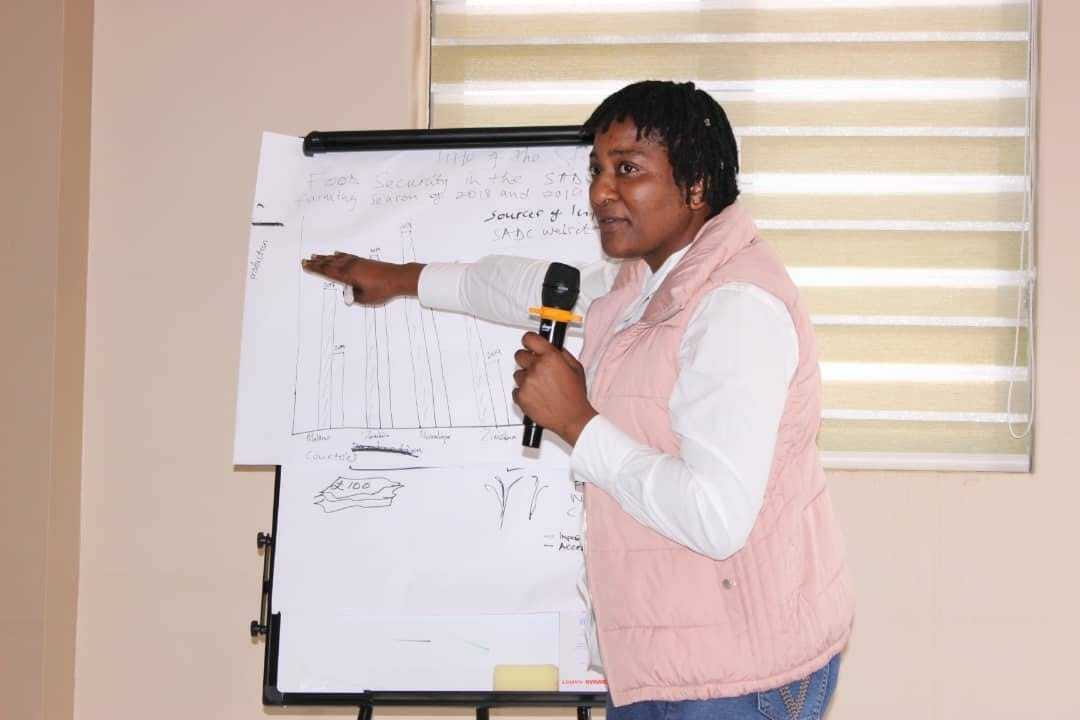
MALAWI: A group of journalists who attended the two-day Data Storytelling Workshop in Mponela, Malawi, from May 10 to 11, 2022, praised the training as timely and eye-opening.
Take, as an example, Zimbabwean journalist, Daphne Machiri, who says it was a great honour for her to participate in the Data journalism and investigative workshop because it provided a broader foundation of expertise and acquaintance in terms of how to do stories using data.
Daphne, a Manica Post correspondent, said: “Datafication makes it difficult for most African journalists to fulfil their roles as mediators of social processes to various audiences. Journalism has traditionally been a human-centred field in which we tell stories but do not analyse and comprehend figures. However, I found this workshop to be extremely insightful and engaging due to the use of new tools to sort facts and sharpen our digital storytelling.”

She also stated that the training will improve her storytelling by teaching her how to search data on factual websites or journals, verify the data, clean, analyse, and visualise the data using the latest fact-checking digital tools such as spreadsheets and tabula.
“This will pave the way for a positive change in the data news landscape while upholding accountability,” she said.
Daphne also praised the organisers "for an opportunity."
Zambian journalist Samuel Khwawe, for his part, stated that the data journalism training workshop provided him with a broad foundation of skills in all aspects of development.
He said it was eye-opening, especially learning about new digital data collection, visualisation, and analysis tools like Tabula and Google Spread Sheets, among many others.
"The training will undoubtedly set me apart from the quacks who have infiltrated journalism and spread false news on social media. I'd like to thank Rhodes University and the Action Aid organisation in Malawi, Zambia, and Zimbabwe for providing such an important opportunity to journalists. Journalists will also be able to strengthen social accountability by collaborating with communities to hold leaders accountable,” said Samuel who is Eastern Region Chief Bureau for Diamond TV Zambia.
Samuel produced this report on the training:
Commenting on the training, Lawrence Munkombwe, of Zimbabwe Broadcasting Cooperation(ZBC), simply said: “The data journalism training was an eye-opener for me as it adds value to Development Support Communication. Besides, story visualization will authenticate my reports and be worth evaluating.”
Sifuwe Mwangala, from the Zambia News and Information Services (ZANIS), encored remarks by other journalists that the data journalism training was an eye-opener for the journalists.
“It reminded us of the need to write more stories on data journalism because many times we concentrate on political stories. Also, the training brought to the fore the need to elaborate more on statistics when dealing with stories that have numbers in order for people to visualize the stories well. Also the need to also research, verify and use credible sources when writing on data journalism,” she said.
She said she plans to share what they have learned from the training with other journalists in her province (Western part of Zambia), “so that more journalists can cover data stories.”
Charity Alufinali, a journalist for Gaka Community Radio, had this to say about the training: "The training was eye-opening; at first, it was difficult for us to find information on the internet, but with the arrival of data journalism training, that will change. And will apply the skills to data journalism-related stories."

Facilitated by veteran data journalism trainer, Adam Oxford, the training, organised by Rhodes University and Action Aid, brought together journalists from Zambia, Zimbabwe and Malawi.
Some of the topics covered include sources of data, acquiring and verifying data, data cleaning, data analysis, and data visualisation and storytelling.